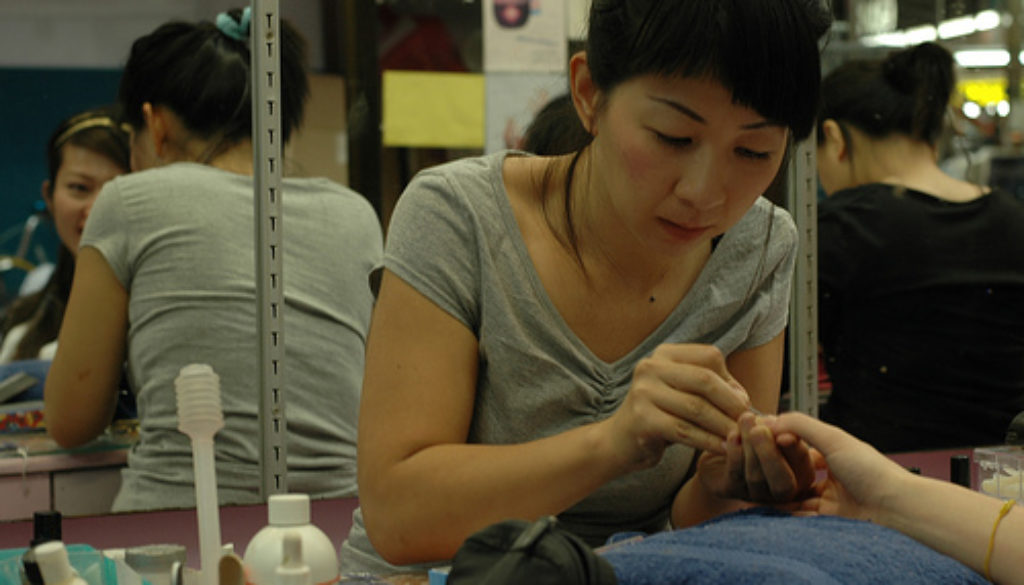The Policy Failures Exposed by The New York Times’ Nail Salon Investigation
By David Cooper, Economic Analyst, Economic Policy Institute
An eye-opening story published last week by The New York Times revealed how manicurists in New York’s booming nail salon industry are subject to brazen exploitation. Workers are exposed to dangerous chemicals, expected to work excessively long hours, subject to racial and ethnic discrimination and verbal abuse, and regularly paid less than the minimum wage—if they’re paid at all. New hires are even forced to pay their employers a “training fee,” before working unpaid for weeks until their employer arbitrarily deems them worthy of getting paid.
The good news is that New York Governor Andrew Cuomo has already ordered emergency measures to investigate and combat these abuses. The bad news is that what’s happened in New York is the product of national policy failures that almost guarantee these same practices are not unique to the Empire State, or to the nail salon industry.
Many of the manicurists described in the piece are undocumented immigrants. Failure to protect any group of workers—even those without lawful immigration status—is damaging to all workers. When businesses can exploit immigrant workers who cannot speak out for fear of deportation, it lowers the wages of other workers in the same or similar fields—whether they are authorized to work or not. Regardless of how someone has entered the country, if they are engaged in employment, they should have some practical and accessible recourse against exploitative labor practices. Legalization would, by itself, raise labor standards for tens of millions of Americans, along with the immigrants most directly affected.
At the same time, weak enforcement of labor laws, either due to lack of resources for enforcement agencies or the general apathy of lawmakers, has led to huge amounts of wage theft—the practice of employers not paying wages that workers have duly earned. The story describes rampant wage theft among New York’s nail salons, but it is far from unique to the salon industry. In fact, wage theft nationwide cost workers billions of dollars each year—more than the combined value of all robberies in the United States.
Some of the abuse exposed in the story is also made possible by the fact that manicurists are considered tipped workers; most of the country is governed by a two-tiered minimum wage policy that treats tipped workers (waiters, waitresses, bartenders, manicurists, hair salon workers, and others) as second class citizens. Under federal law, any worker who customarily receives tips need only be paid a base wage of $2.13 per hour by their employer, provided that their tips, on top of the base wage, bring them up to the regular minimum wage. This system puts an absurd burden on tipped workers. The onus is on the worker, most of whom are women, to keep track of all her hours, tips, and base pay, and then confront her employer—the person determining her shifts, the conditions of her work environment, and even if she will retain employment—to ask for additional pay if she has not made enough in tips to reach the minimum wage.
Not surprisingly, this requirement that employers “top off” inadequate earnings from tips is notoriously difficult to enforce and is prone to abuse. As a consequence, tipped workers are nearly twice as likely to be in poverty as their non-tipped counterparts. There is simply no economic justification for this separate treatment of tipped workers—it is merely a means for employers to shift wage costs directly onto consumers.
If we are serious about stopping the kind of exploitation revealed by the Times, we need action beyond nail salons and beyond New York. We need to start treating tipped and nontipped workers equally, by eliminating the tipped minimum wage, as seven states have already done and a new federal bill has proposed doing. We need federal immigration reform that brings undocumented workers out from the shadows and under the protections of the law. And we need state and federal labor departments armed with adequate resources and a strong mandate to root out abuse. Otherwise, abuses like those in New York’s nail salons will continue to be common, even if we’re not reading about them.

